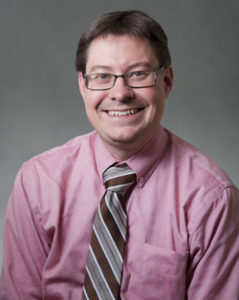Membership/Membership Career Resources/ACNP Career Development Panel
Paul Holtzheimer, M.D.

Paul Hottzheimer MD
At the 2011 Annual Meeting, the Membership Advisory Task Force organized an “Ask the Experts” Career Development Panel. This informal, interactive session was very well attended (by both junior and senior ACNP members), and the discussion was lively and informative.
Panelists included:
- Pierre Blier, Professor of Psychiatry, University of Ottawa, Institute of Mental Health Research
- Linda Brady, Director, Division of Neuroscience & Basic Behavioral Science NIMH
- Alan Breier, Vice President, Clinical Affairs, Indiana University School of Medicine
- Wayne Drevets, Director and President, Laureate Institute for Brain Research
- John Krystal, Chair, Department of Psychiatry, Yale
- Eric Nestler, Professor and Chair of Neuroscience, Mount Sinai School of Medicine
- Philip Ninan, Vice President, Clinical Affairs, Pfizer
- David Rubinow, Chair, Department of Psychiatry, University of North Carolina at Chapel Hill/School of Medicine
- Michael Thase, Professor of Psychiatry, University of Pennsylvania School of Medicine
These panelists provided advice related to a number of issues relevant to Associate Members and other junior investigators, including: (1) when to consider changing institutions and/or taking a new position; (2) how to put together a successful funding portfolio; and (3) how to balance family and work demands. Examples of the pearls given were:
- 1. When considering a career move, don’t move to get away from something, but rather move towards something that attracts you and/or can better advance your career.
- 2. In general, the panelists recommended against interviewing for a position you’re not interested in simply to use as a bargaining chip in negotiations related to your current position.
- 3. Regarding funding, the panelists agreed that you should pursue those questions you really care about (even if not currently popular). Also, it was recommended to work to put together a diverse mix of funding (e.g., federal [NIH and/or VA] and non-federal non-profit [foundations]).
- 4. Most panelists admitted they had made personal sacrifices (often related to time spent with family) in order to be successful in their careers. However, they emphasized that one should make a concerted effort to provide some balance in the work/non-work realms. Specific examples included planning to be home for family dinner at a specific time each night, becoming actively involved in their children’s activities (such as coaching a soccer team), and getting involved in community programs.
Related to this last point, it was notable that very few of the panelists had a partner/significant other that had a full-time career, where nearly 75% of the audience did. Also, only one of the panelists was a woman. The general impression was that the advice was still useful, but that it would also be helpful to have input from members that better reflect the demographics of the junior membership.
Overall, the Membership Task Force concluded that the panel was highly successful, and we look forward to hosting similar Career Development sessions at future meetings. We would very much appreciate suggestions and comments from those that attended as well as those who may attend future sessions. We would be particularly interested in your thoughts on potential topics, ideal panel size, how to achieve a balanced mix of panelists that best reflects the demographics of the membership (especially the Associate Membership), and how to make these sessions optimally interactive.
Thank you to those that attended this session, and we look forward to your feedback.
